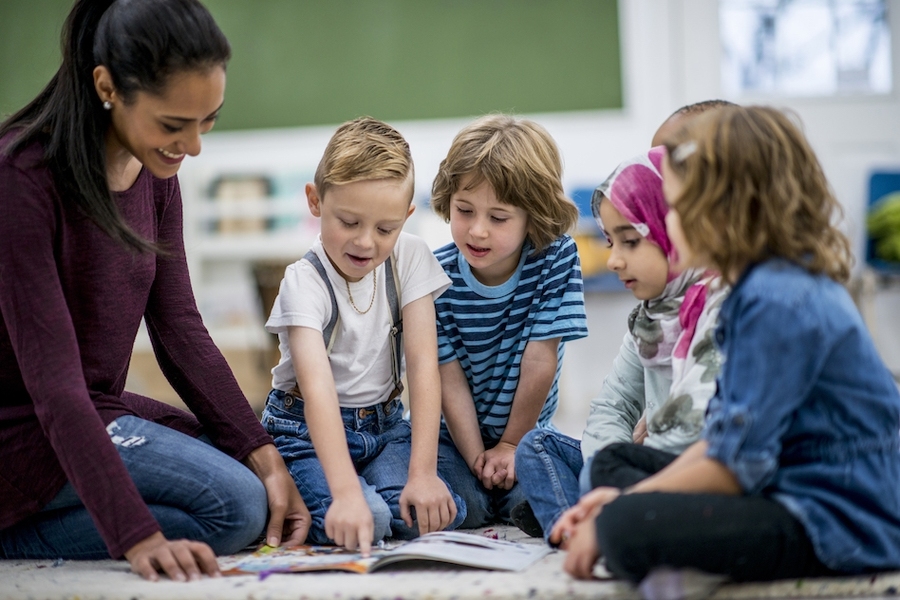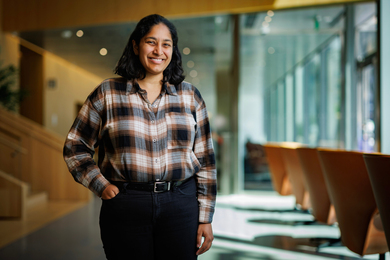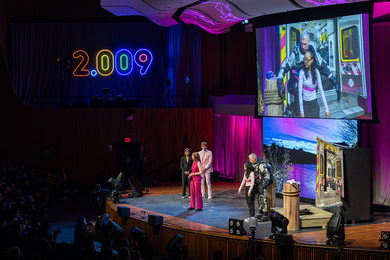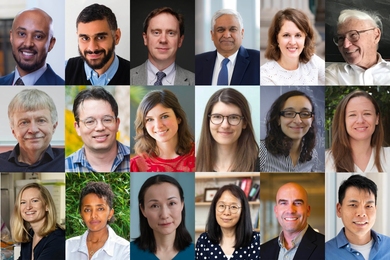Today, MIT’s Integrated Learning Initiative (MITili), Harvard Graduate School of Education (HGSE), and Florida State University (FSU) announced a collaboration to make sure every child learns to read well enough by the end of third grade to make learning more effective later in their education. This will be achieved through research on how personalized learning and intervention improve early childhood literacy.
Research shows that students who fail to read adequately in first grade have a 90 percent probability of reading poorly in fourth grade, and a 75 percent probability of reading poorly in high school. This compounds the need to level the playing field in literacy early in a child’s education.
This new collaboration, called Reach Every Reader, brings MITili, HGSE, and Florida State University researchers together to work on rigorous scientific approaches to personalized learning for literacy, to develop diagnostic tools and interventions to help young children at risk for literacy before they fail, and to build capacity among educators, caregivers, and policy makers to advance ongoing conversations and instructional strategies around personalized learning. The initiative is supported by a $30 million grant from Priscilla Chan and Mark Zuckerberg, co-founders of the Chan Zuckerberg Initiative.
"For a young child, struggling to read can be a crushing blow with lifelong consequences. Multiply that experience by millions of children, and it's a crisis for our society," says MIT President L. Rafael Reif. "At MIT, we approach the problem as scientists and engineers: by seeking to understand the brain science of how learning happens, and by building innovative technologies and solutions to help. We are delighted to be able to contribute in these ways to the exciting collaboration behind Reach Every Reader."
“We are excited to support the launch of Reach Every Reader, a unique combination of cutting-edge education and neuroscience research to better understand how we can help every kid stay on track to reading on grade level by the end of third grade. I know from my work at The Primary School how important it is to identify learning barriers students face early and provide them with the right supports to succeed,” says Chan, who is also the founder and CEO of The Primary School. "This new program represents the type of bold, innovative thinking that we believe will help build a future for everyone and enable transformative learning experiences.”
“This new collaboration between MITili and HGSE synergizes MIT’s strengths in science and engineering with HGSE’s expertise in the education of children. In addition, working with researchers in the Florida Center for Reading Research and College of Communication and Information at FSU will help us gain expertise in early literacy screening and assessment. We need all this knowledge to improve education, especially for children most vulnerable to falling behind,” says John Gabrieli, the Grover Hermann Professor of Health Sciences and Technology, a professor in brain and cognitive sciences, and director of MITili.
Gabrieli and his collaborators are developing a web-based tool for the early identification of reading challenges to help direct children immediately toward personalized interventions. This work builds on Gabrieli’s research on the neural and cognitive development of learning in children, and the ways neuroscience can inform and advance educational outcomes. A key component of Reach Every Reader is to examine the interventions that work for which student, building substantive research in this emerging field. The team will work with school partners to deliver these interventions to kindergarten students in summer programs and, longer term, implement these tools into the school curriculum.
“Nothing is more fundamental to all aspects of education and citizenship than the power to read,” Gabrieli explains. “This collaboration is inspired by the mission of trying to have every child, regardless of circumstance, learn to read well enough by third grade so that every child can read to learn throughout the schooling and workplace years.”
Reach Every Reader is part of MITili’s larger vision to advance multidisciplinary research on the science of learning that will inform and strengthen approaches to preK-12 education. “Science is continuously shedding more light on how we learn, and how we ought to teach,” says Sanjay Sarma, vice president for Open Learning at MIT. “MITili and HGSE are addressing early childhood literacy head-on through this collaboration.”
The initiative is funded by Chan and Zuckerberg, who founded the Chan Zuckerberg Initiative (CZI) together in 2015. The philanthropic organization supports a range of educational research initiatives, focusing on four key milestones: kindergarten readiness, third-grade literacy and math, high school transitions, and postsecondary success.








